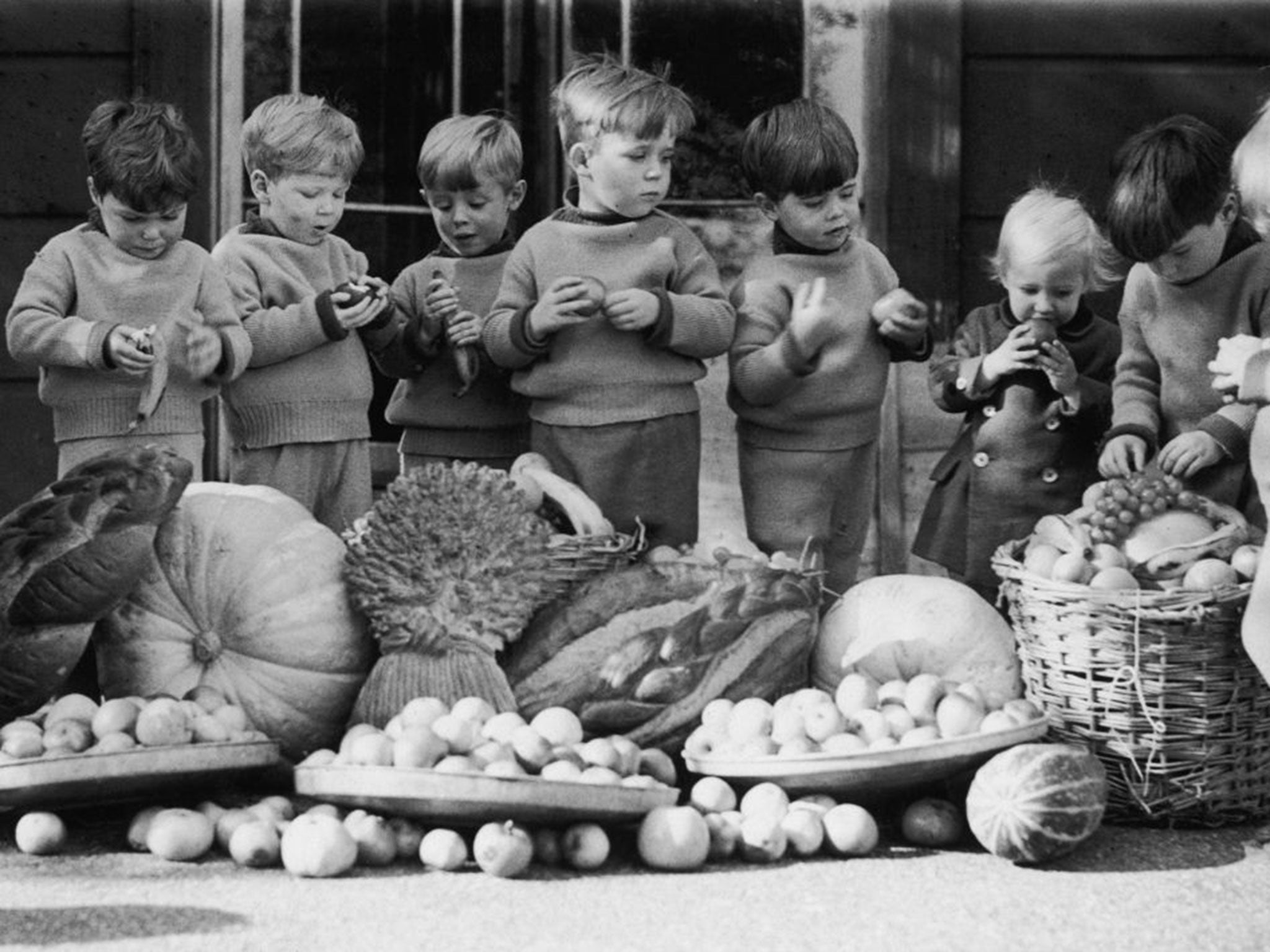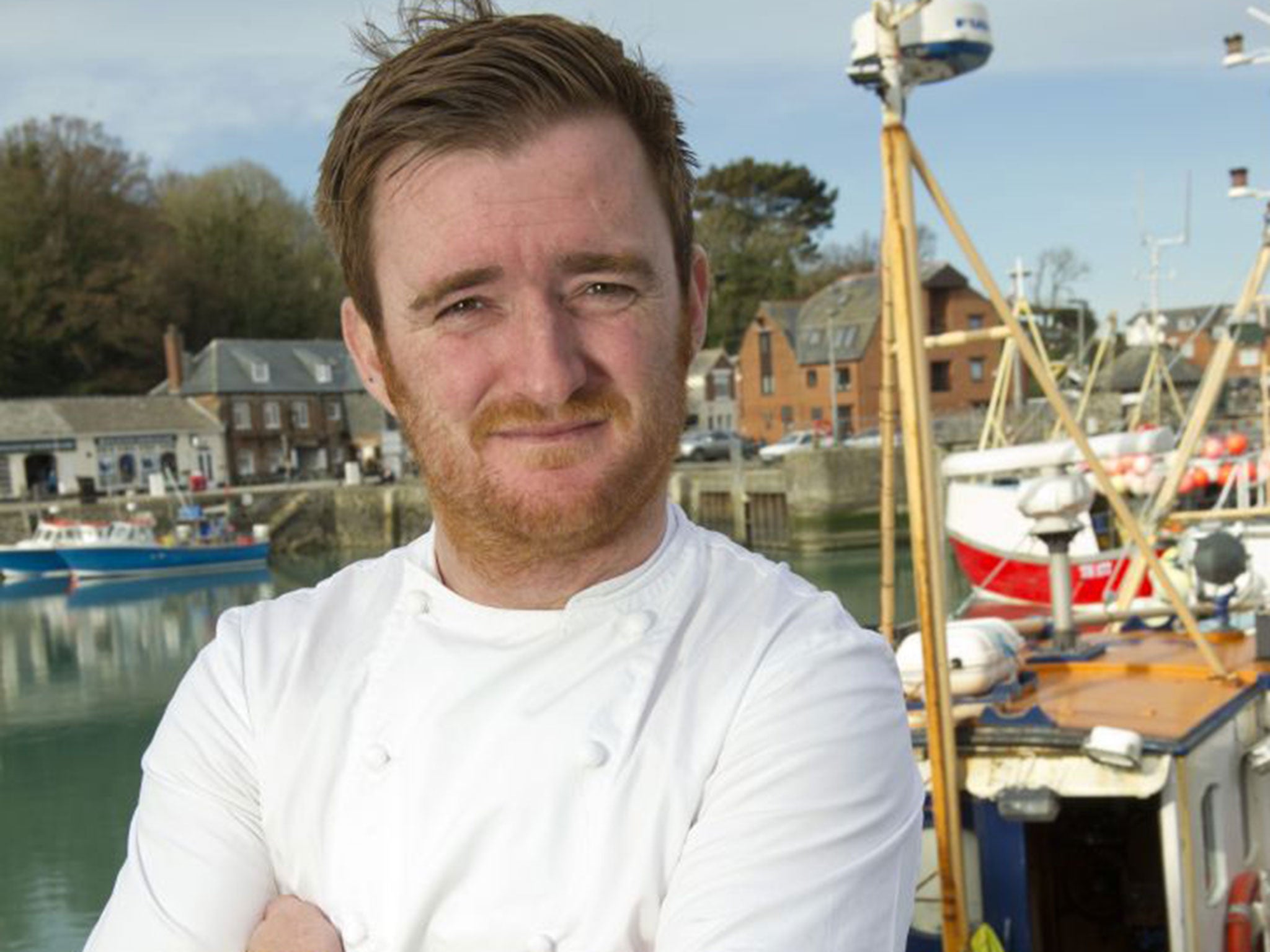The harvest festival revival: Grow your own... then give it away
Chefs are breathing new life into the tradition by celebrating seasonal and local food, says Tom Witherow

Your support helps us to tell the story
From reproductive rights to climate change to Big Tech, The Independent is on the ground when the story is developing. Whether it's investigating the financials of Elon Musk's pro-Trump PAC or producing our latest documentary, 'The A Word', which shines a light on the American women fighting for reproductive rights, we know how important it is to parse out the facts from the messaging.
At such a critical moment in US history, we need reporters on the ground. Your donation allows us to keep sending journalists to speak to both sides of the story.
The Independent is trusted by Americans across the entire political spectrum. And unlike many other quality news outlets, we choose not to lock Americans out of our reporting and analysis with paywalls. We believe quality journalism should be available to everyone, paid for by those who can afford it.
Your support makes all the difference.Forget cans of tuna and packets of instant mashed potato, a new campaign is set to rekindle traditional harvest festivals with a fresh focus on locally sourced produce.
The harvest festival celebration dates back to pagan times and in Christianity is traditionally held on or near the Sunday of the harvest moon – the full moon closest to the autumn equinox. Traditionally schools have collected canned goods for the needy, but this year chefs and campaigners also want the tradition to be seen as a celebration of homegrown produce and regional suppliers.
Jack Stein, executive chef of his father, Rick’s, restaurant empire, has been getting people excited for the harvest with an event called the “Cornish Foodie Mile”, which set the challenge of finding ingredients within a mile (“and a half”) of the kitchen. “Harvest festival is about celebrating the end of the growing season, and a kind of getting together of people ... and seeing how the community can keep going in the winter,” he said.
Like many people, the chef first experienced a harvest festival at school. “Everyone had to bring in something, and my school was in a very rural area. People had loads of bread and pumpkins, lots of autumnal stuff on a huge table.”
But it’s only since he’s worked in restaurants that he understands the community value of celebrating the festival: “What I didn’t understand at the time was the idea that this is what we’ve produced, this is what we’ve got to live on. This is what we’ve got as a collective unit, as a family or a village... to survive on for the winter.”

British Food Fortnight began yesterday and a “Bring Home the Harvest” campaign has been launched, calling for schools and youth groups to create a harvest box of fresh fruit and vegetables (ideally that the children have grown themselves) as well as a selection of local produce. The celebration will include a National Harvest Service at Birmingham Cathedral on 20 October.
Andy Jones, who is running the campaign, said the inspiration for the campaign came out of his childhood “Bring Home the Harvest is about community. It’s something we used to do years ago, but sadly we no longer do,” he said.
Mr Jones argues that consumers have become used to the exotic year-round offerings of supermarkets and, as more of us move to cities, our distance from the men and women who grow our food is growing. “We’re most certainly detached from our growers. Some kids, they don’t even know where a carrot’s grown; they think it’s grown in a supermarket.
“We’ve forgotten what seasons are because they’re available all year round. And if you lose what seasons are then you’re losing what food is. With strawberries only in June and July – it gives a good feeling to everyone who sees them on shelves and in shops. Let’s get back to the harvest and use seasons more.”
Bring Home the Harvest is also working to bring locally sourced produce into hospitals, added Mr Jones, who is national chair of the Hospital Caterers Association. “A lot of it is down to using the local suppliers and it obviously being seasonal. It’s about using the local suppliers who actually produce those goods and highlighting the great work that they do. That’s why I’m behind this campaign.”
He wants to make hospitals a focal point for the celebration, as a means of improving the quality of hospital meals. “Some trusts are doing a harvest festival for the first time. They’re getting staff to bring in products into the hospital to be put on display, and then delivered out to the needy who require them,” he said.
Anti-poverty campaigner and cook Jack Monroe, author of a A Year in 120 Recipes, recently took part in the Harvest Food Festival in Cornwall, held at the Eden Project, and said the celebrations reminded her of her childhood: “What comes into my head is a mental image of me aged about seven dressed up as this huge cardboard banana singing, ‘We plough the fields and scatter ...’ at my primary school assembly to a group of tittering parents. My memories of harvest festivals as a child are all fairly joyous and happy ones.”
Like Mr Jones, she thinks the festival is a great opportunity to engage kids with food. “If you go to your local supermarket then you find carrots in a bag, so to children who have ever known anything different, how would they know that carrots come from the ground?”
Join our commenting forum
Join thought-provoking conversations, follow other Independent readers and see their replies
Comments